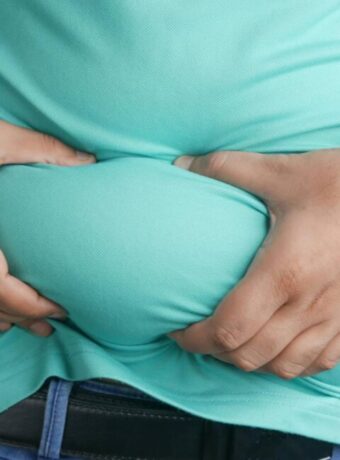1. Chest Pain or Discomfort
The most common symptom of a heart attack is chest pain or discomfort, often described as a feeling of pressure, tightness, squeezing, or fullness in the chest. This pain can come and go, or it may last for several minutes. It typically occurs in the center or left side of the chest and can radiate to the arms, shoulders, back, neck, jaw, or stomach. Chest discomfort is the hallmark symptom but may be subtle or mild in some cases.
2. Shortness of Breath
Shortness of breath is another common symptom that can occur alongside chest pain or even without it. This happens because the heart is unable to pump blood effectively, causing fluid buildup in the lungs and limiting oxygen intake. Difficulty breathing can occur suddenly or progressively worsen, especially during physical activity or when lying down, and may lead to feelings of anxiety or panic.
3. Sweating and Cold Sweats
Profuse sweating or cold sweats are common signs of a heart attack. This occurs because the body goes into shock as it tries to deal with the stress of the heart muscle being deprived of oxygen. The sweating may feel clammy or cold, even if the person is not physically exerting themselves, and can be associated with feelings of nausea or lightheadedness.
4. Nausea, Indigestion, or Vomiting
Many people experience nausea, indigestion, or vomiting during a heart attack, particularly women. This can occur because the body is responding to the stress of the heart attack, and the autonomic nervous system (which controls involuntary functions like digestion) is affected. This symptom can sometimes be mistaken for a stomach issue or anxiety, making it harder to identify a heart attack early.
5. Pain in Other Areas of the Body
Heart attack pain doesn’t always stay confined to the chest. It can radiate to the arms (usually the left arm), shoulders, neck, jaw, or upper back. Some people may also experience pain in the stomach or abdomen. This referred pain happens because of the way the nerves in the heart are connected to other parts of the body. The discomfort may be sudden and intense, or it may start as mild and become more severe over time.
6. Dizziness or Lightheadedness
Dizziness, lightheadedness, or even fainting can occur during a heart attack. These symptoms are usually a result of decreased blood flow to the brain, which happens when the heart is struggling to pump blood effectively. Some people may feel faint, dizzy, or unsteady, and this could lead to loss of consciousness if the heart’s ability to pump blood worsens rapidly.
7. Fatigue or Weakness
Feeling unusually tired or weak, even with minimal physical exertion, can be a subtle sign of a heart attack. This symptom may appear days or weeks before the more obvious symptoms, particularly in women. The fatigue can feel overwhelming, like a sudden drop in energy, and may make it difficult to carry out everyday activities.
8. Cold or Clammy Skin
As the body responds to the stress of a heart attack, blood flow is redirected to vital organs, which can result in cold, clammy, or pale skin. This is often a sign of shock or a drop in blood pressure. The skin may feel moist or cool to the touch, which can be a warning sign of a serious cardiac event.
9. Heart Palpitations or Irregular Heartbeat
An irregular heartbeat or palpitations, where the heart feels like it is racing or fluttering, can be another sign of a heart attack. The heart may struggle to maintain a normal rhythm as it becomes weakened by a blockage. These abnormal heart rhythms can make you feel anxious or lightheaded and may be accompanied by chest pain.
10. Anxiety or a Feeling of Impending Doom
Many people who are experiencing a heart attack report a feeling of intense anxiety or an overwhelming sense of doom, as if something bad is about to happen. This may be related to the body’s response to stress and lack of oxygen or blood flow. Although it is not always present, this emotional symptom can be a significant clue for people experiencing a heart attack.




